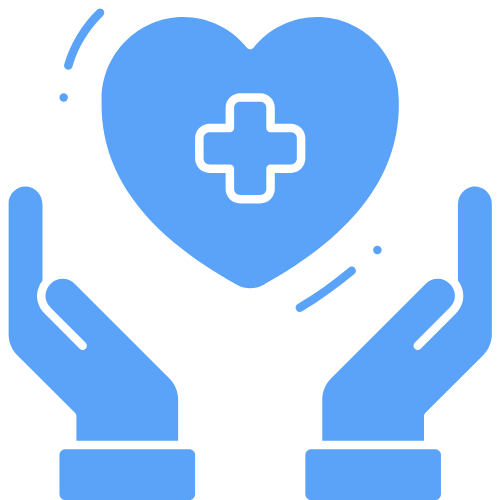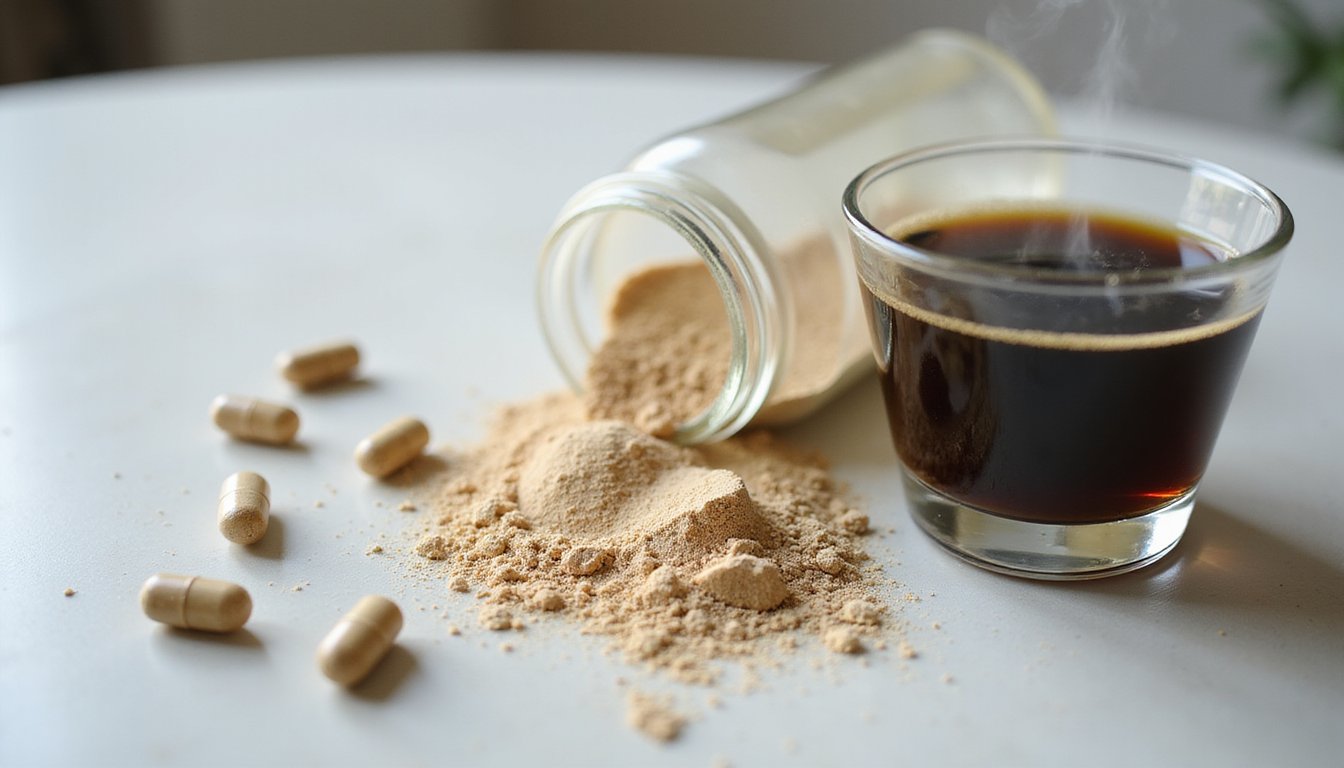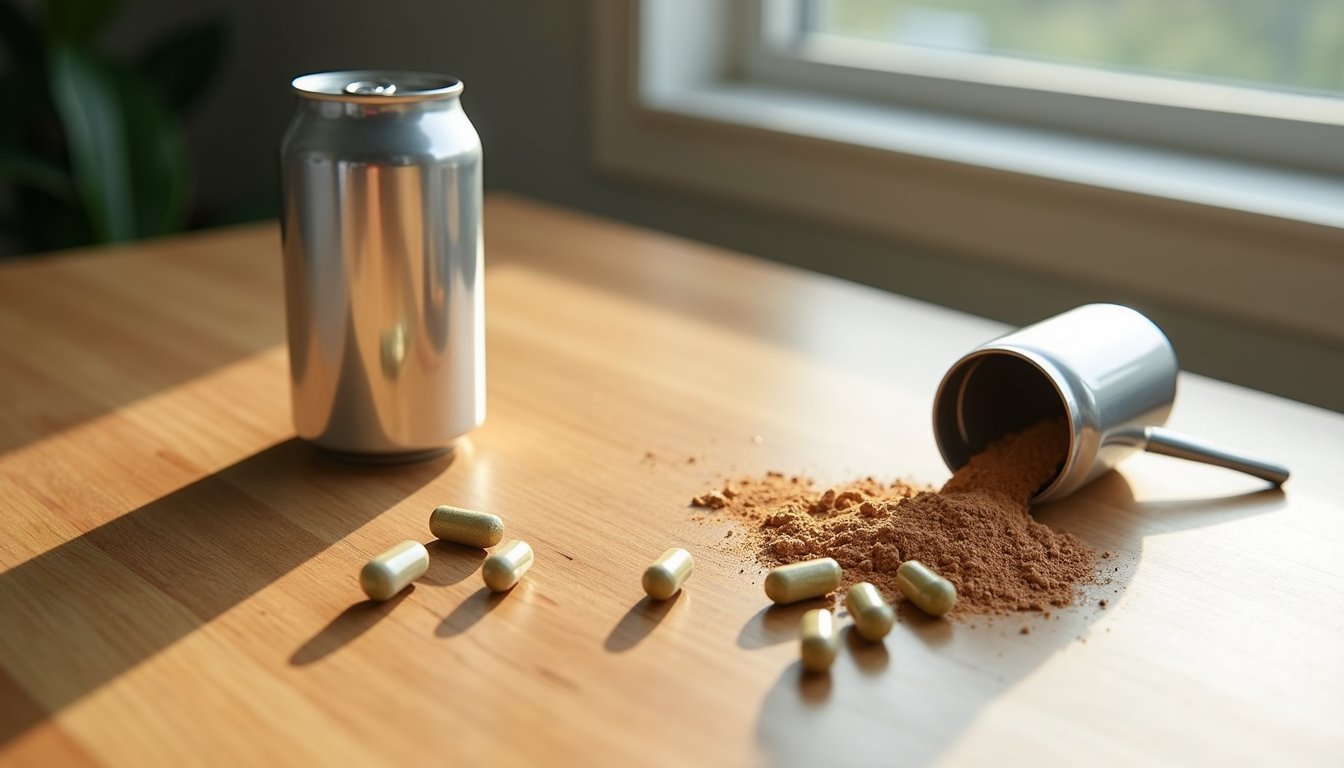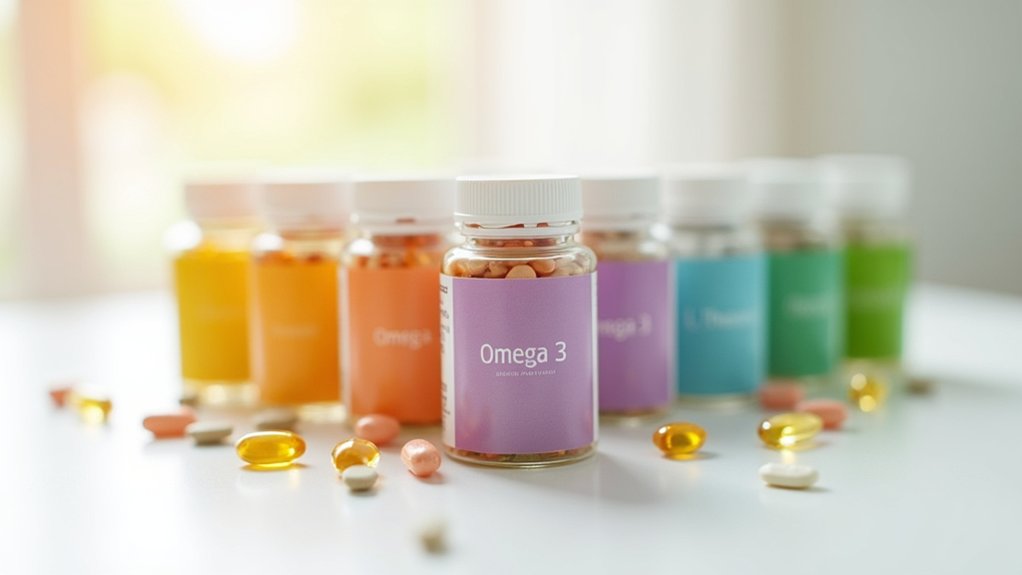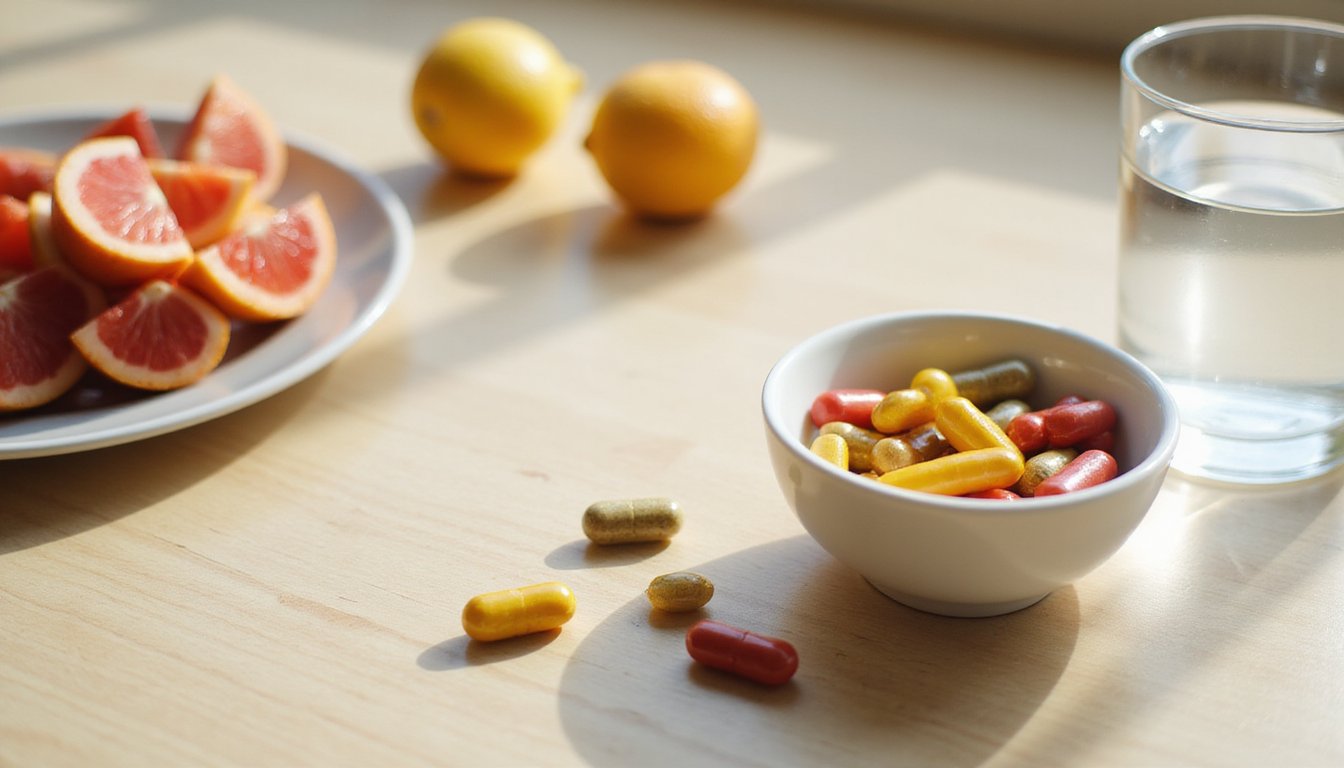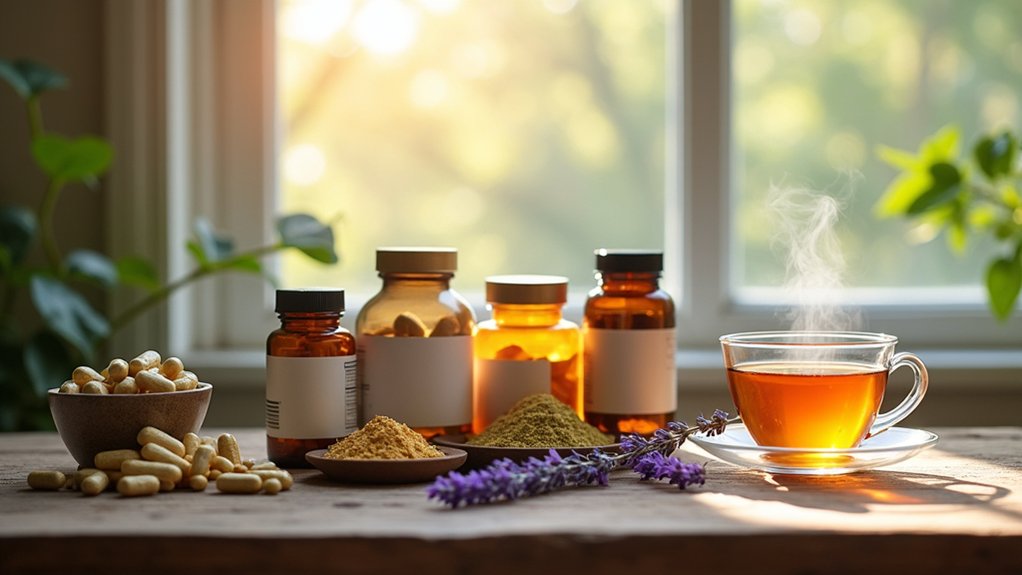Several well-researched supplements may help support your child’s anxiety management when used under medical supervision. L-theanine promotes calming neurotransmitters, while vitamin B6 aids in their production. Magnesium helps regulate emotional stability and brain function, and omega-3 fatty acids show promising results in clinical trials for reducing anxiety symptoms. You’ll want to prioritize quality products and proper dosing, as supplement effectiveness and safety vary considerably. Learn the essential guidelines for choosing the right options for your child.
Understanding Childhood Anxiety and Natural Supplements

While childhood anxiety was once considered relatively uncommon, current data reveals it affects a substantial portion of youth worldwide, with rates doubling during the COVID-19 pandemic to affect over 20% of children. Recent studies show anxiety among youth increased 27% between 2016-2019. Your child’s risk can increase due to various factors, including parental mental health challenges, exposure to trauma, or underlying chronic physical illness. Children face a particularly high risk when their parents struggle with anxiety, as parental anxiety predisposes kids to developing anxiety disorders themselves. When left untreated, anxiety disorders typically follow a chronic and persistent course throughout life.
As you explore natural supplement options, it’s essential to understand that research in children remains limited. While some supplements like melatonin, omega-3s, and magnesium show promise in adults, their effectiveness specifically for pediatric anxiety lacks robust scientific evidence. Most studies have focused on adult populations, leaving significant knowledge gaps in how these supplements affect developing brains and bodies. Always consult your child’s healthcare provider before starting any supplement regimen, as safety and dosing requirements differ for children.
The Science Behind L-Theanine and Vitamin B6
Because your child’s brain chemistry plays a pivotal role in managing anxiety, understanding how L-Theanine and Vitamin B6 work together can help you make informed decisions about supplementation.
L-Theanine works through neurotransmitter modulation by increasing GABA, dopamine, and serotonin levels, integral brain chemicals that regulate your child’s mood and anxiety. Clinical studies show it is well-tolerated in children with minimal side effects reported. It crosses the blood-brain barrier directly, helping calm overactive nerve networks and protecting brain cells from stress. Research shows that Vitamin B6 serves as a crucial coenzyme in the synthesis of neurotransmitters like serotonin and dopamine.
Vitamin B6 serves as an essential catalyst for producing these same neurotransmitters, while also supporting your child’s brain function through myelin formation and blood-brain barrier protection. Research indicates that Vitamin B6 is 100 times more concentrated in the brain compared to bloodstream levels. When combined, these supplements create a synergistic effect: L-Theanine provides immediate calming benefits through increased alpha brain waves, while B6 maintains long-term neurotransmitter balance, potentially improving your child’s resilience to anxiety.
Magnesium’s Role in Calming Young Minds

As research continues to reveal magnesium’s critical role in brain health, this essential mineral emerges as a powerful tool for managing childhood anxiety. By regulating magnesium homeostasis, your child’s brain can better balance pivotal neurotransmitters like serotonin, dopamine, and GABA, promoting emotional stability and reducing stress. Studies show that combining magnesium with Ritalin medication produces beneficial behavioral outcomes in children.
Magnesium helps control neuronal excitability by lowering cortisol levels and decreasing excessive glutamate activity. The mineral’s ability to block glutamate release helps prevent overstimulation in the brain. Studies show that low magnesium levels can significantly contribute to difficulty concentrating and maintaining attention in children. You’ll find that adequate magnesium levels support your child’s cognitive function, learning ability, and academic performance while reducing anxiety symptoms and improving self-regulation.
With up to 70% of Americans being magnesium deficient, supplementation may benefit children showing signs of anxiety or mood challenges. Consider well-absorbed forms like magnesium glycinate, and consult your healthcare provider about combining it with vitamin B6 for enhanced calming effects.
Evidence for Omega-3 Fatty Acids in Children
Recent research suggests omega-3 fatty acids may help reduce anxiety symptoms in children, though findings remain mixed. Three out of five clinical trials showed significant improvements using daily doses between 1,000-2,500mg over 12-week periods. EPA-rich formulations tend to show superior effectiveness compared to DHA-dominant supplements. While researchers haven’t established clear dose-response relationships, studies indicate omega-3s work well both alone and alongside other treatments. Research shows that sample sizes varied considerably across studies, from just 23 to over 300 participants.
You’ll find omega-3 supplements are generally safe for children, with studies tracking use up to 18 months without significant side effects. One study found that supplements containing 647mg EPA and 253mg DHA produced notable decreases in emotional reactivity. They’ve shown promise even in cases with comorbid conditions like depression, though results are more consistent in children without multiple diagnoses. The most effective protocols often combine omega-3s with vitamin E or tocopherol as protective antioxidants. While more research is needed, current evidence supports omega-3’s potential role in managing childhood anxiety.
Safety Guidelines and Professional Support
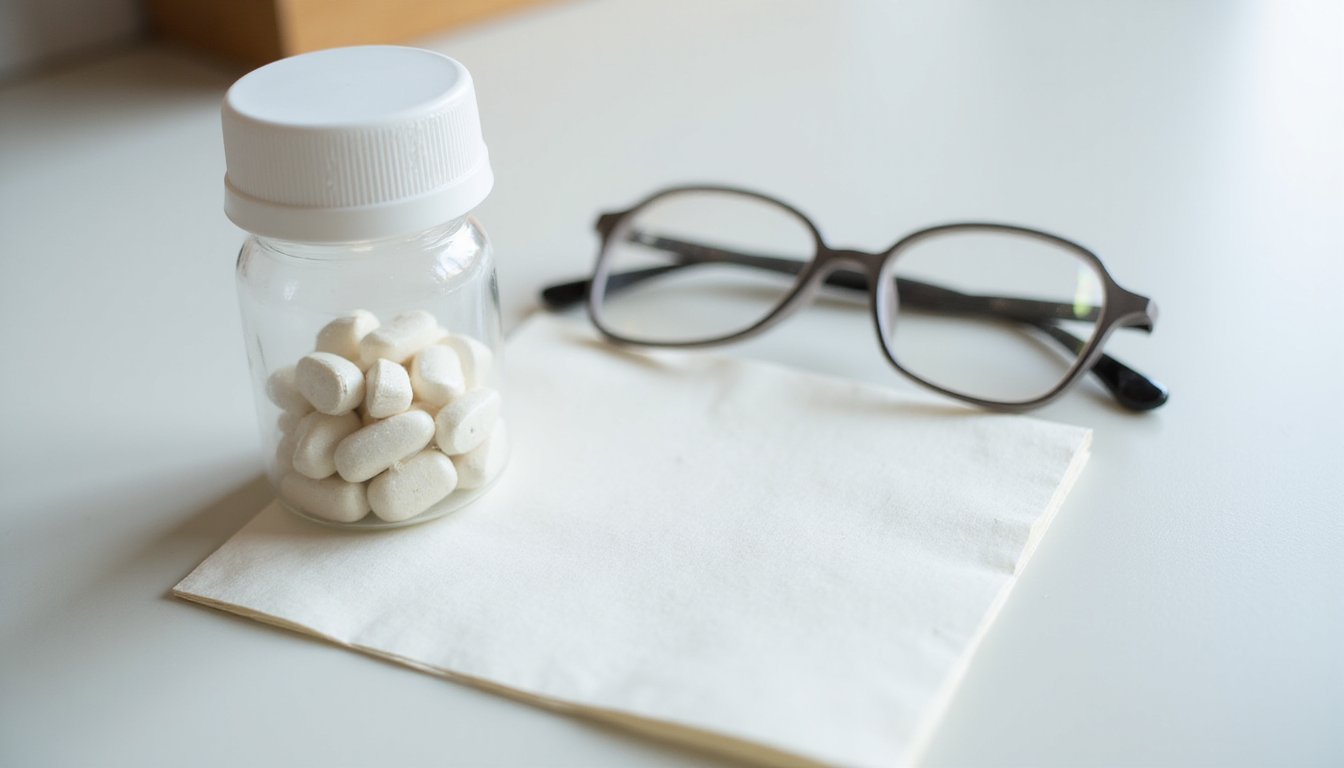
While many parents seek natural solutions for their children’s anxiety, supplement safety requires careful consideration and professional guidance. Since supplements lack strict FDA oversight, quality and content can vary dramatically between brands, making professional consultation vital before starting any regimen. Parents with college education tend to use these supplements more frequently for their children.
You’ll need to work with your child’s healthcare provider to guarantee proper dosing, screen for interactions, and select medical-grade products. They can help monitor for adverse reactions and report concerns through established channels. Store all supplements in child-resistant containers out of reach, and never present them as treats. Children are particularly vulnerable to supplement side effects due to their immature immune systems.
Research shows that over 70 percent of supplement labels contain inaccurate dosage information, making medical oversight even more crucial. If accidental ingestion occurs, contact poison control immediately, even without symptoms. Remember that “natural” doesn’t automatically mean safe, and supplements shouldn’t replace proven anxiety treatments without your healthcare provider’s advice.
Frequently Asked Questions
How Long Does It Typically Take to See Results From These Supplements?
You’ll typically notice initial improvements within 4-8 weeks when maintaining a consistent dosage schedule. While some supplements like L-theanine and vitamin B6 may show effects as early as 2-4 weeks, most require 8-12 weeks for ideal results. For long-term effectiveness, you’ll need to continue the supplements for several months. Early changes in sleep or concentration might appear before full anxiety relief. Regular evaluation every 4-8 weeks helps track your child’s progress.
Can These Supplements Be Mixed With Common Children’s Medications?
You should never mix supplements with your child’s medications without consulting their healthcare provider first. Many supplements can cause serious drug interactions and potential side effects when combined with prescription drugs. Even “natural” supplements can alter how medications work in your child’s body. Since children process substances differently than adults, they’re especially vulnerable to adverse reactions. Always get professional medical clearance before starting any supplement alongside medications.
What Time of Day Is Best to Give Anxiety Supplements?
You’ll want to give most anxiety supplements in the morning or early afternoon with meals for ideal absorption. However, supplement timing varies: B vitamins and L-theanine work best in the morning due to their energizing effects, while magnesium and 5-HTP are better suited for evening dosage timing. Stick to morning administration for omega-3s and vitamin C, and avoid giving energy-boosting supplements near bedtime as they might disrupt your child’s sleep.
Should Supplements Be Taken With Food or on Empty Stomach?
You’ll want to give most anxiety supplements with a meal to optimize absorption and minimize stomach upset. Fat-soluble vitamins (A, D, E, K) need dietary fat to work effectively, so take these with food containing healthy fats. For water-soluble vitamins (B, C), consume with water and a light snack if your child has a sensitive stomach. Minerals like magnesium are best taken with food, while probiotics work well just before or during meals.
At What Age Can Children Safely Start Taking These Supplements?
Most anxiety-related supplements are safe for your child starting at age 4, but you’ll need to follow specific supplement safety guidelines. Magnesium and probiotics can typically begin at age 4, while L-theanine and chamomile are better suited for children 6 and older. Always consult your pediatrician for appropriate dosage recommendations based on your child’s age and weight. Don’t start any supplement regimen without professional medical supervision, as individual needs vary.
